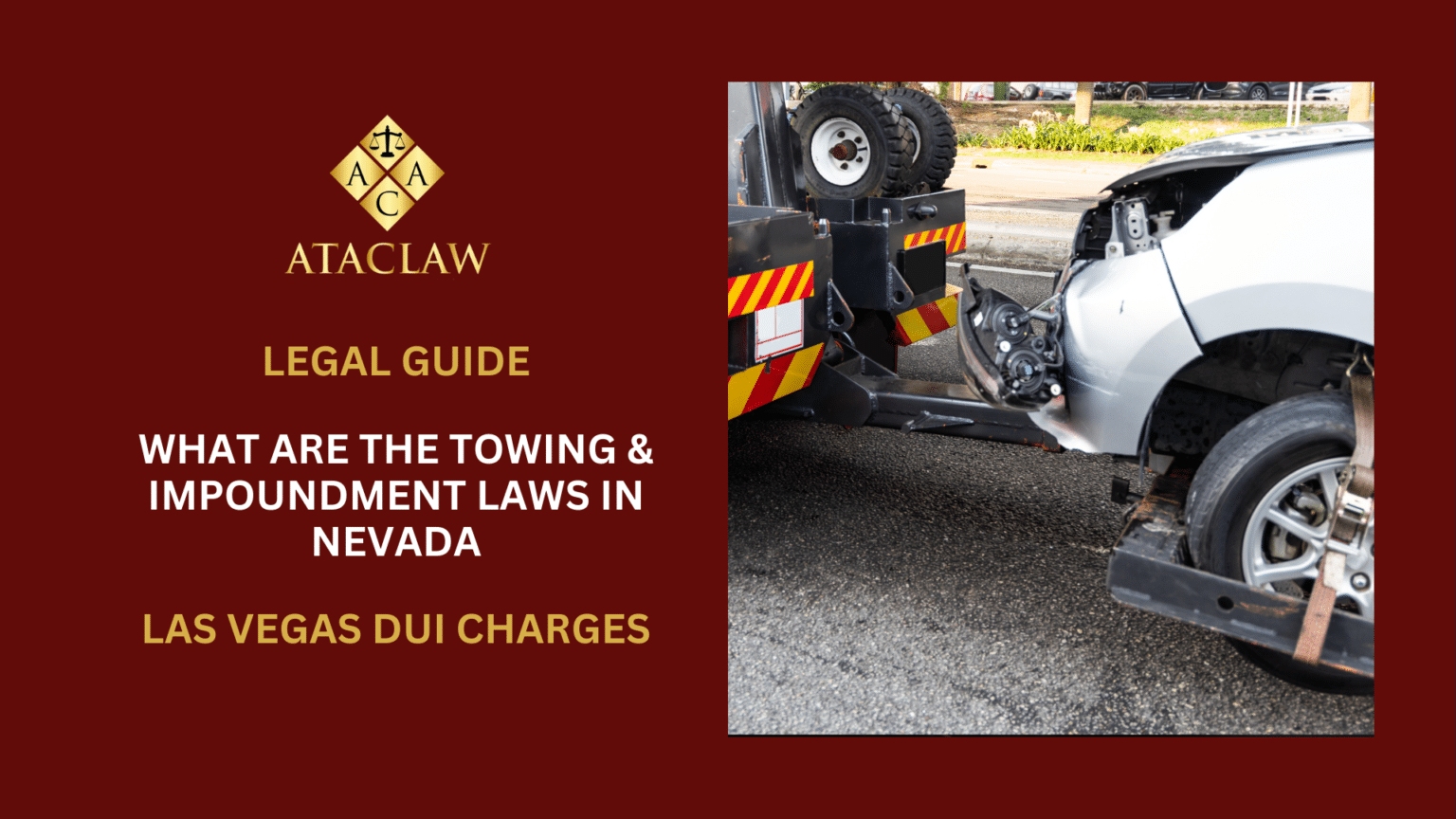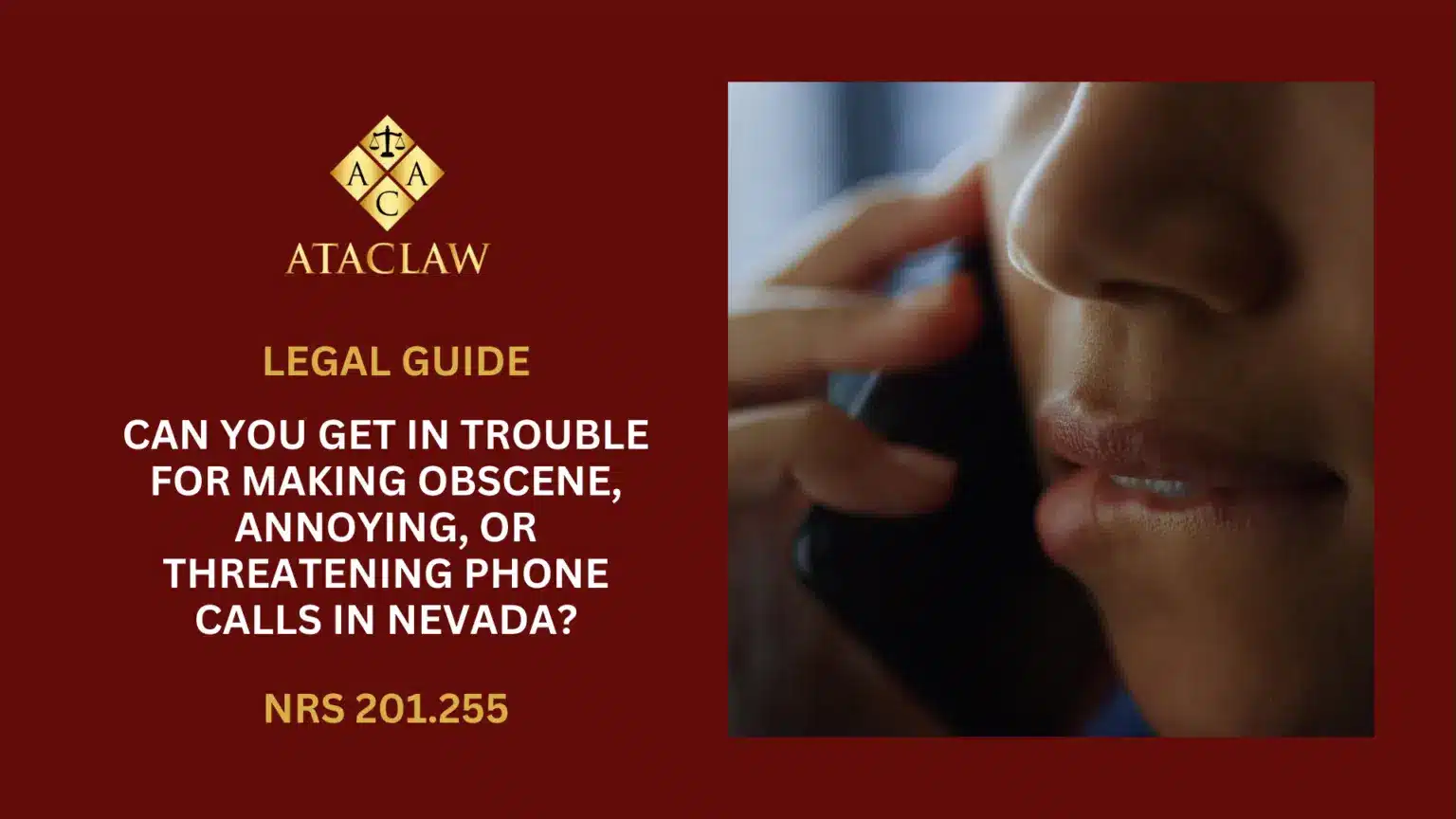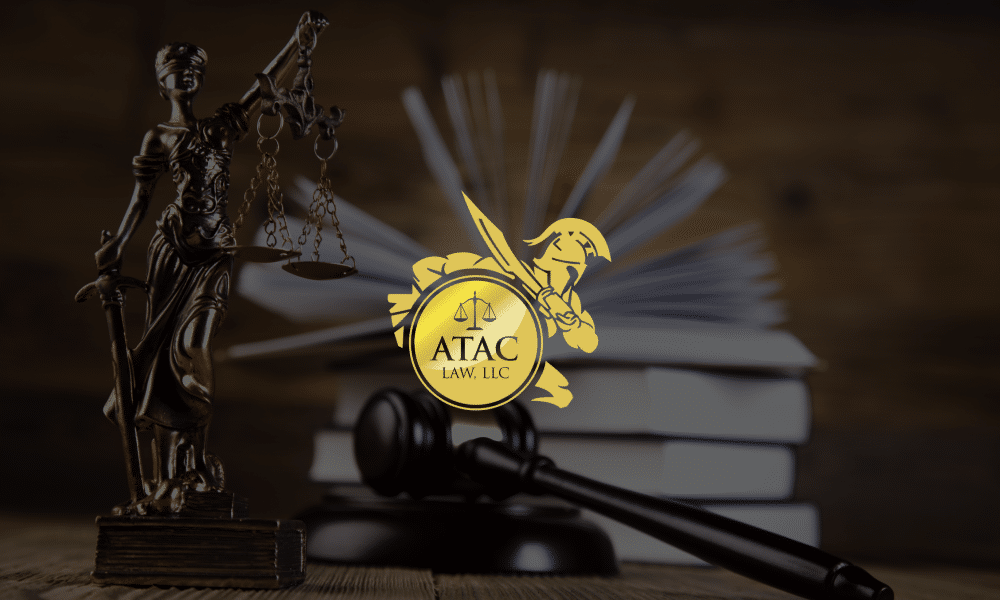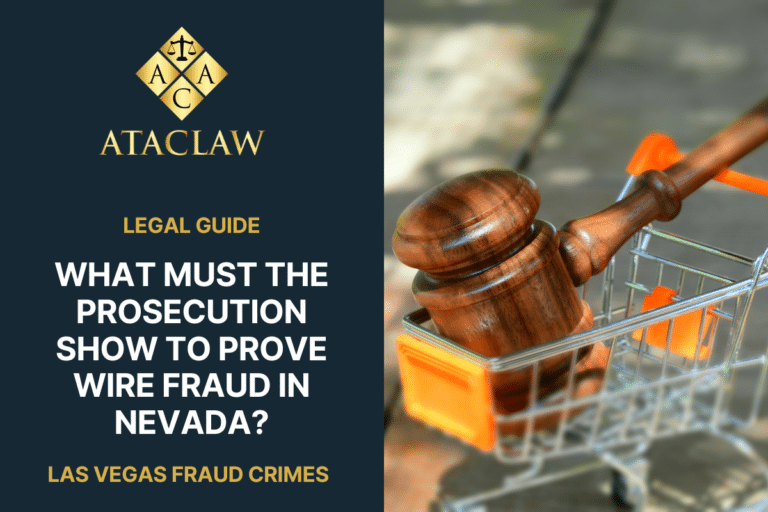As a reputable law firm, ATAC LAW is here to help you understand the towing and impoundment laws in Nevada and ensure you know your rights in such situations. This blog aims to address common questions regarding vehicle impoundment, including the circumstances under which a vehicle can be towed and impounded, the procedures for retrieving an impounded car, limits on impound and storage fees, towing without warning, rules for apartment complexes, towing trailers, and what to do if a car is illegally parked on your property. By being informed, you can protect your rights and handle these situations appropriately.
When can a vehicle be towed and impounded in Nevada?
Nevada law outlines various circumstances under which a vehicle can be towed and impounded. One common scenario is illegal parking. If a vehicle is parked in violation of parking regulations, such as blocking a fire hydrant, occupying a handicapped parking space without proper authorization, or parking in a way that obstructs traffic, it may be towed and impounded. This is done to maintain public safety, ensure smooth traffic flow, and enforce parking regulations.
Another situation where a vehicle can be towed and impounded is in the event of a car accident. Law enforcement officers or towing companies may tow and impound vehicles involved in accidents, especially if they are obstructing the roadway or pose a safety hazard. This enables the investigation of the accident, facilitates the removal of damaged vehicles, and ensures the safety of the vehicles and their contents.
Reckless driving is another circumstance that can lead to towing and impoundment. If a driver is found to be operating a vehicle recklessly, putting themselves and others in danger, law enforcement officers may have the authority to tow and impound the vehicle. This is done as a safety measure to prevent further incidents and to hold the driver accountable for their dangerous behavior.
Furthermore, cases involving DUI or other arrests can also result in the impoundment of a vehicle. When an individual is arrested for driving under the influence or other offenses, law enforcement officers may impound their vehicle. This is often done to ensure the vehicle is safely stored while the driver is in custody and to deter individuals from driving under the influence in the future.
Are cars always towed after a DUI arrest?
After a DUI arrest, cars are not always towed, as the decision to impound a vehicle depends on various factors. Law enforcement officers have the authority to impound a vehicle in certain situations, but it is not mandatory. The decision to tow a car after a DUI arrest is typically based on several factors, including the driver’s blood alcohol concentration (BAC), the availability of a sober driver to take custody of the vehicle, and the location of the arrest.
If a driver’s BAC is significantly above the legal limit or if the driver has previous DUI convictions, law enforcement officers are more likely to tow and impound the vehicle. This is done to prevent the driver from being able to continue driving under the influence and posing a risk to themselves and others on the road.
How do you get an impounded car back in Nevada?
To retrieve an impounded car in Nevada, there are specific steps you must take and requirements you need to fulfill.
First, contact the impound yard where your vehicle is held to obtain their address, contact details, and office hours. Next, gather the necessary documents to prove ownership, such as the vehicle’s title or registration, your valid driver’s license, and proof of insurance. Make sure these documents are up-to-date and readily available. Before visiting the impound yard, verify any outstanding fees for towing, storage, and related services by contacting them. This will help you prepare financially and avoid surprises.
Once you have all the required documentation and have confirmed the fees, visit the impound yard during their designated hours. Provide proof of ownership and identification, such as the vehicle’s title or registration in your name, along with your valid driver’s license or identification card. Pay the fees associated with towing, storage, and any other applicable charges. Make sure to bring a form of payment accepted by the impound yard, such as cash, debit card, or credit card. Once you have fulfilled all the requirements and paid the necessary fees, the impound yard will provide you with the paperwork and instructions to retrieve your vehicle.
Follow their instructions carefully and ensure you have any additional keys or documents required. It is important to act promptly when dealing with an impounded vehicle to avoid further complications, as most impound yards have specific time limits before a vehicle is considered abandoned and may face additional penalties or be auctioned off.
Are there limits on impound and storage fees?
Nevada law establishes certain limits on towing and storage fees to protect consumers from excessive charges. The Nevada Revised Statutes (NRS) provide guidelines on maximum rates that impound yards can charge for various services. It is crucial to familiarize yourself with these regulations to ensure you are not being overcharged when reclaiming your impounded vehicle.
Can vehicles be towed without warning?
Yes, vehicles can be towed without warning in certain situations in Nevada. When a vehicle is obstructing traffic, parked illegally, or causing a safety hazard, law enforcement or private towing companies may remove the vehicle without providing prior notice. These actions are taken to ensure public safety, maintain traffic flow, and enforce parking regulations.
If your vehicle is towed without warning, it is important to respond appropriately. First, try to determine where your vehicle has been towed. Look for any signs or call the local law enforcement agency to inquire about the location of the impound yard. They can provide you with the necessary information to retrieve your vehicle.
Once you have located the impound yard, contact them to understand the specific requirements and procedures for reclaiming your vehicle. You will likely need to provide proof of ownership (such as the vehicle’s title or registration), valid identification, and pay the required fees for towing and storage.
Are there special rules for apartment complexes?
When it comes to towing vehicles in apartment complexes, Nevada law imposes certain requirements to protect the rights of tenants and vehicle owners. Apartment complexes that wish to tow vehicles must adhere to specific regulations, including providing proper signage, obtaining proper authorization, and following established procedures. Familiarizing yourself with these rules is essential if you reside in an apartment complex.
Are there special rules for towing trailers?
Towing trailers in Nevada is subject to specific regulations and requirements outlined in the NRS. These rules cover aspects such as licensing, size and weight restrictions, safety equipment, and appropriate methods of attachment. Understanding the laws regarding towing trailers is crucial to ensure compliance and avoid potentially costly consequences.
What if a car is illegally parked on my property?
If you encounter a situation where a car is illegally parked on your property, there are legal processes you can follow to have the vehicle lawfully removed. It is important to familiarize yourself with the procedures, such as providing proper notice and obtaining authorization from law enforcement or a towing company. This ensures that you address the situation correctly, protect your property rights, and avoid potential liability.
We believe that understanding your rights and the laws surrounding towing and vehicle impoundment in Nevada is crucial for every individual. By staying informed, you can protect your interests, respond appropriately in various situations, and ensure that your rights are upheld.
ATAC LAW is here to help you navigate the complexities of towing and impoundment laws. If you find yourself in a situation where you require legal assistance or have further questions, do not hesitate to reach out to our experienced attorneys. Protecting your rights is our top priority.
Legal References:
Do you need a DUI attorney in Las Vegas?
If You’re Facing Charges, We’re Here To Help.
Call us for helpWe have answers for you
To learn more about DUI in Las Vegas and how to get your DUI charge dismissed or to discuss a particular criminal case that you or someone you love is facing, Call ATAC Law firm for help to get your charges reduced or dismissed.
Contact us for a FREE phone meeting to discuss your case with what people are calling the best criminal defense attorney in Las Vegas.
At ATAC, our Las Vegas team of lawyers is here to work with you to help you through your case.





